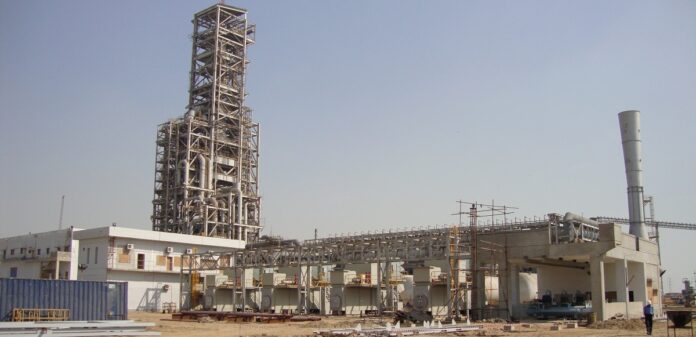ISLAMABAD: Expressing serious concerns over the government’s intention to facilitate the revival of Al-Tuwairqi Steel Mills Limited (TSML) through heavily subsidized gas and tax exemptions, the local steel industry has claimed that the proposed plan would cause an annual burden of over Rs13.2 billion to the national exchequer.
Through a letter sent to Prime Minister Imran Khan and Adviser to PM on Commerce Abdul Razaq Dawood, the Pakistan Association of Large Steel Producers (PALSP) has claimed that the particular project was being pushed with great haste and by ignoring the tenets of meritocracy.
TSML, a joint foreign direct investment project of KSA’s Al-Tuwairqi Group of Companies, was established at Bin Qasim, Karachi, over an area of 220 acres. The Saudi firm had halted its plant operations after the Pakistan Muslim League-Nawaz (PML-N) government had refused to provide gas at a discounted rate.
The plant has been dysfunctional since June 2013.
The TSML management had sought gas supply at Rs123 per million British thermal units (mmbtu) in a bid to efficiently run the plant. However, the then government had turned down the request, arguing that it would amount to a subsidy of Rs25 billion over five years.
According to sources, while the bureaucracy was reluctant to approve special facilities being proposed for the revival of TSML, an influential lobby was forcing the government to consider the revival plan.
“Although officials at the Ministry of Industries and Production and Federal Board of Revenue (FBR) are opposing the special facilities being offered to TSML, at least half a dozen reminders have been sent to FBR and relevant authorities to consider the revival plan,” an insider told this scribe. “The officials are opposing the summary related to the TSML revival to avoid court cases as they consider the proposed plan to be a clear case of the National Accountability Bureau (NAB).”
The proposed tax exemptions include exemption of minimum income tax for 10 years, exemption of 2pc additional customs duty (ACD) on import of pellets, and waiver of regulatory duty and ACD on import of DRI (direct reduced iron)-based billets for a period of one and half year.
It was also proposed to give TSML the status of a ‘Special Economic Zone’ so that it could enjoy all exemptions given by the government to seven SEZs under the China Pakistan Economic Corridor.
“At full capacity, Tuwairqi Steel Mills will be getting a subsidy of almost Rs13.2 billion per annum from the government, including subsidy on gas and income tax exemptions,” the PLSP noted in its letter sent to the PM.
“Tuwairqi’s product, DRI, will try and replace imported scrap, but import substitution numbers will be negative when considering the subsidies required for the Pakistan Steel Mill to be operational, i.e. major components of DRI manufacturing are RLNG and iron ore, both imported products.
“Moreover, import substitution will only be done partially because technology predominantly used in Pakistan for steel making can only process maximum 20pc of gas-based DRI, while balance will still have to be imported scrap.”
As per the PLSP, “Given that many DRI exporting countries are those where gas prices are in the range of $2.5 per mmbtu and may even have iron ore available domestically, it doesn’t seem that TSML will be viable in the export market even after subsidized gas is available to them at $4.65 per mmbtu.”
The association further stated that since DRI must be at least 15pc cheaper than shredded scrap prices for it to make commercial sense, maximum local buyers would be willing to pay $260 per tonne for DRI.
“As subsidised gas price and iron ore pellets alone will cost Tuwairqi $220 per tonne, will they be able to cover all other costs and overheads in just $40 per tonne?” the association asked. “It is now clear that we will be giving perpetual gas subsidy to Tuwairqi and we will have to import RLNG to augment our demand for gas which doesn’t make sense. Therefore, we must promote the production of DRI and iron pallets through the use of coal gas and iron ore.”























